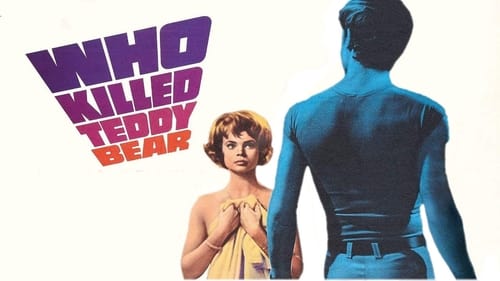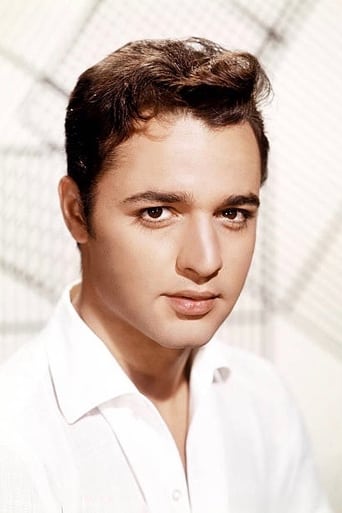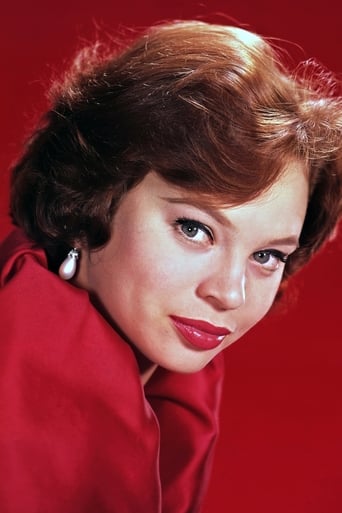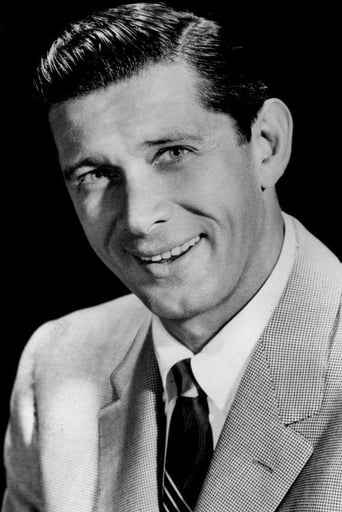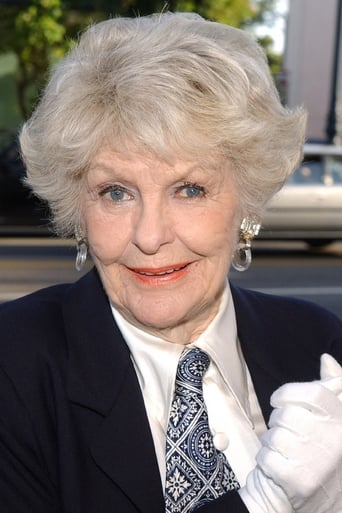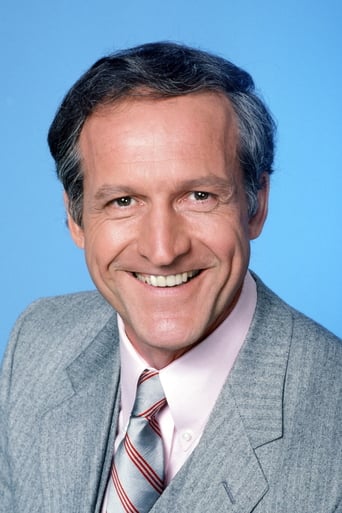FeistyUpper
If you don't like this, we can't be friends.
Catangro
After playing with our expectations, this turns out to be a very different sort of film.
Aubrey Hackett
While it is a pity that the story wasn't told with more visual finesse, this is trivial compared to our real-world problems. It takes a good movie to put that into perspective.
Francene Odetta
It's simply great fun, a winsome film and an occasionally over-the-top luxury fantasy that never flags.
jaibo
A long out of circulation cult film, Who Killed Teddy Bear is a kind of stepping stone between Hitchcock's excavation of the warped mind in psycho, with its final psychiatric classification of Norman Bates, and Martin Scorsese's Taxi Driver, with its disturbed lonely man lost amongst the newly permissive urban landscape.The primary focus of Joseph Cates' 1965 film is a sometime dancer and barmaid (Juliet Prowse) who has been receiving obscene and threatening phone calls from an unknown person. Yet as the case unfolds, the film becomes more intrigued by the characters surrounding her – the possibly lesbian manageress of the bar (Elaine Stritch), the investigating detective who is obsessed by abnormal psychologies (Jan Murray) and the disturbed busboy who turns out to be the caller (Sal Mineo). Each of the characters seems alone and immersed in the modern urban condition. Throughout the film, a preponderance of mirror shots (the "solving of the case even involves a mirror) suggests a world in which everyman and everywoman's sickness reflects everyone else's. The detective seems to have become so obsessed with his quarry that he almost crosses the line into psychosis himself, the manageress might have her own sexual agenda in wishing to help her victimized employee and each of them seems as much of a threat as the unknown caller. Prowse does not know who to trust, even whether to trust herself, and although the film descends into a "get the culprit" finale, even this traditional end fractures into a private turmoil lost in an alienating environment.The film offers a series of very strong character studies, all remarkably well acted, but often seems concerned to conjure the feel and sound of the times through montages to music, of dancing, working out and wandering, and its black and white footage cut to pop hits makes it seem like a greyscale Kenneth Anger at times. One of the montages involves Mineo drifting through the fleshpots, bookshops and cinema foyers of Times Square, an eerie presentiment of Travis Bickle. Mineo is particularly strong in the role of the tormented busboy, tortured on a rack between the unfettered expression of carnal nature he sees all around him (and has the potential for within) and the last psychotic jerks of a Puritan sexual consciousness. Mineo proves here what a remarkable actor Hollywood wasted when it underused him, and his physical presence – often showing his toned body in swimming trunks or flaunting his butt in the tightest of Chinos – suggests a missing link between mainstream Hollywood and underground stars like Warhol's Joe Dallesandro and Pink Narcissus' Bobby Kendall.Who Killed Teddy Bear isn't a perfect film – there's something missing structurally and a tendency towards melodrama – but its picture of a world fallen from a childhood Eden into an adulthood of sticky and strange sexual dramas, it was way ahead of its time and still stands head and shoulders above most of the so-called sophisticated cinema of today.
grunsel
When you think of movies about New York from this period in time, what comes to mind to me as a foreigner is a woodwind instrument blowing in the background while Jack Lemmon (or a lookalike) in a shiny suit neurotically babbles away something insignificant. Who killed Teddy Bear comes along and sticks its fingers up at the Hollywood system and is a break thru movie in every sense. This flawed, creaky, creepy and cranky movie is a delight. Not forgetting that you are led into the wonderful atmosphere by the wailing and unforgettable theme tune, which sounds like an old 45rpm record where the center hole has not been cut quite right.IMHO due to Hollywood, American Independent film makers were just not taken seriously enough at this time, because of this, films like this have been unfairly over looked as great examples of low budget, gorilla technique( getting the shot before the police arrives etc). Taxi Driver was classic, but you know it was meticulously planned, every location permission was got and sums agreed, shots were retaken until they got it right. Well Who Killed Teddy Bear is wild and untamed and surely a minor classic?
jpbrinkman206
Hard to believe and very sad to realize that we are coming close to the 30th anniversary of the death, in February-1976,of the brilliant, beautiful, enigmatic, and influential talent of Sal Mineo. He was one of the original 50's heartthrobs who debuted with his poetic performance in the now legendary James Dean classic, Rebel Without a Cause. Later, Mineo became known for his talent and his courage in his art and in his life. He would tackle much more difficult roles and become the first actor to declare his homosexuality, unapologetically. Teddy Bear is Mineo at his most brilliant, most haunting, most daring and most heartbreaking. Coming at a time in his career when he was frustrated with very little roles to choose from, came this harrowing film from director Joseph Cates. It is important to note, and upsetting to say that Teddy Bear is mostly regarded as a "cult classic" and sometimes viewed as a late night schlock/camp film. Nothing could be further from the truth. Here is a film that was not only ahead of its time in subject matter, as well as actors pushing the envelope, but also influencing Martin Scorsese's Taxi Driver(1976) and Alan J. Pakula's Klute (1971).First, it is important to note how much "Teddy Bear" resembles the great Italian films from the late '50's, early'60's. Another great feat for Joseph Cates, is showing the remarkable influence from Michaelangelo Antonioni's L'Eclisse. This is another film dealing with the issues of disillusionment with life and society. Antonioni films Italy as though the surroundings of the characters are being consumed by their environment, a constant theme in Cates' Teddy Bear. Even more remarkable, one can see similarities between Monica Vitti in L'Eclisse and Sal Mineo in Teddy Bear. Both actors never indicating, but truly feeling the confusion, the sadness, and despair with their lives and what they have amounted to. Cates is the one director who beat all others to the punch before imitation of Italian cinema in America became the norm. Joseph Cates dared to show New York as it sadly sometimes can be, a dark, hedonistic, and self absorbed web of sex, self satisfaction and ultimately personal confusion turning to crisis. And he found the perfect actor to personify this as well in the form of the lead character. Mineo never compromises from film's beginning to end. It is a performance of the kind James Dean would have probably played had he lived. And Mineo plays it with all of the same courage, energy and longing that James Dean himself did in Kazan's East of Eden. Alas, Mineo himself had surpassed Dean in some ways with this performance and still, it is ignored. By watching Mineo in this performance, one sees the influence for Robert De Niro's historic Travis Bickle character. A decade earlier Mineo created a character who becomes a victim of an uncaring society, sexual disfunciton and a New York spiraling into hell. Mineo's character certainly would have made movie legend, like DeNiro had done with Driver, if Teddy Bear had been accepted by theatergoers in the first place. Joseph Cates' brilliant directing is overlooked as well. One is reminded of Scorsece's Taxi Driver throughout. The parallels are very easy to see. Cates had made the first movie to address some very upsetting and complicated issues that apparently no one wanted to see on the screen in 1965. Cates treats each character it seems as though they have lost all sensiblility in some cases and are detached from any kind of emotion. Sadly, when each character comes close to any kind of connection, they become even more bitter or face a confusion they can't comprehend or would even want to. Cates also did a brilliant job in creating the other characters through through the other actors in the film. Juliet Prowse as a jaded but still hopeful actress who desperately seeks independence. Jan Murrey as a soul sick cop. And last but not least, the stunning,incandescent Elaine Stritch who steals every scene that she's in and showing a vulnerability and human frailty that would still surprise people in 2006. Teddy Bear has yet to be available on DVD in wide release. It is the last in a series of insults to Cates' vision and Sal Mineo's heartbreaking talent. How soon we forget and overlook an actor of such talent, grace and beauty as Sal Mineo. After seeing his shattering performance in Who Killed Teddy Bear he will be even more greatly missed.
olddiscs
I couldn't believe how this unrecognized unheralded film of the mid 1960s captured the sleaziness & the downfall of NYC during that time The photography is amazing.. the score capturers the early disco era... Sal Mineo is unbelievably sensuous, erotic, neurotic, as is Elaine Stritch who plays the Lesbian, Marian wonderful performances.. Juliet Prowse is good in this role..Plot is a bit confusing.. and why did they cast Jan Murray (great TV comic game show host of that era) in this role? Ill never know.... But as I stated before, this film captures the sleazy, unclean, dark, cold snowy sado masochistic, days of NYC in the mid 1960s when that city was on the decline.. Broadway might have been booming, Babs was on B'WAY live in Funny Girl, The Merm was still around. ETC .but the side streets, the crime, the sex shops were running abound..this film captures it all..worth seeing and or buying if it becomes .. available, Bravo ,Sal Mineo. Elaine Stritch, and the director...
